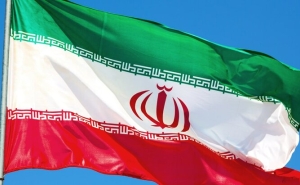 The Results of Israeli Elections are Both Surprising and Logical
The Results of Israeli Elections are Both Surprising and Logical

The results of the Israeli early parliamentary elections are already known. After a long and quite tense campaign very surprising results were recorded. The Zionist Union, which during the whole period of the campaign, according to the polls, was the leading party – a fact that obviously drew Netanyahu into panic – as a result of the elections received only 24 seats in the Knesset, whereas the Likud party received 30 seats.
The results of the elections are both surprising and at the same time logical. The two competing parties during their campaign put their main emphasis on different issues. The Zionist Union taking into consideration the difficult social conditions of the country, during the campaign was mainly speaking about equality, reducing disparities, reducing poverty, promoting public and equal health and public education, promoting workers' rights, gender equality, fighting corruption and racism. The Likud party headed by the Prime Minister Netanyahu, just the contrary, put aside the internal problems of the country and stressed the security issues of the country. To prove the seriousness of his concerns and fears Netanyahu even declared that he draws back from the idea of two-state solution, previously approved by him, again arguing that this would put the security of the country under risk. During his campaign Netanyahu was not only systematically putting forth his the above mentioned thesis, but was also not forgetting to "warn" the society that the two-state solution proposed by the Zionist Union means making concessions to the Palestinians and as a result "giving Palestinians Eastern Jerusalem and returning to 1967 borders."
Thus as in any country that has conflict, in the case of Israel also the security issue was ranked above the social problems. Of course, it is not possible in case of any party to guess, whether their promises if being elected will be fulfilled or not, but the targeted and well-planned campaign gave the expected results.
After achieving the desired outcome it is difficult to say whether Netanyahu will remain faithful to his proposed theses about Israeli-Palestinian conflict which he made during the pre-election period, particularly abandoning the idea of creating a Palestinian state, thus refuting further negotiations or not. However, nothing should be excluded in politics. It is more than likely that Netanyahu will continue his previous policy and will talk again about the possibility of creating two states, of course, if it would be necessary at that moment.
As for the status of Israeli Arabs and whether any changes will take place for them after the election, nothing can be said for sure. But one should remember the "Jewish State" bill put on the discussion of the Knesset, the controversies around which, as well as the disagreements on the adoption of the budget led to the dissolution of the Knesset with a vote of no-confidence. This bill, which Arab Israelis consider discriminatory, because it declares Israel a Jewish state, is likely to be put on discussion again. In this case, however, one thing should be taken into account: according to the results of the elections the United Arab List got 14 seats in the Parliament instead of previous 12 seats , and during the pre-election period it was announcing about forming a coalition with the Zionist Union, if it collected the majority of the votes. This means that on certain issues the United Arab List can unite its power with the Zionist Union.
Other materials on this subject
- Israeli Army Neutralizes Hamas Tunnel In Northern Gaza Strip The tunnel with two routes was dug toward Israeli territory but did not cross the newly-constructed underground sensory barrier and thus did not pose a threat to neighboring communities, the military said.
- Al Jazeera journalist shot and killed during Israeli raid in West Bank The Qatar-based network interrupted its broadcast to announce her death.
- Israel and Hamas Agree Gaza Ceasefire after 11 Days of Fighting The development came amid growing global alarm about the bloodshed, with US President Joe Biden urging Israeli Prime Minister Benjamin Netanyahu to seek de-escalation, and mediation bids by Egypt, Qatar...
- US for 3rd Time Blocking Security Council Joint Statement Calling for Ceasefire between Israel and Hamas The statement was introduced by Norway, Tunisia and China following today’s emergency session on the escalation in Israel and Gaza and criticized both sides for the ongoing violence.
- Israeli Aircraft Strike in Gaza The airstrikes came in retaliation after 13 rocket launches from the Gaza Strip into Israeli territory were identified earlier in the morning, eight of which were intercepted by the Iron Dome missile defense...
Other materials on this subject
- Israel: Gantz and Netanyahu Fail to form Government before Deadline If the parliament fails to select such a candidate, or if the chosen person could not form a government within 14 days, Israelis will be asked to hit the polls yet again.
- Israel Election: Netanyahu Claims 'Biggest Win' Amid Vote Count Monday's election was Israel's third in less than a year, after neither leader was able to form a government.
- Israel to Hold March 2 Election, Its Third in Less Than a Year In that ballot, and in the one prior in April, Netanyahu’s conservative Likud party deadlocked with ex-general Benny Gantz’s centrist Blue and White. Neither managed to muster enough support in the...
- Benjamin Netanyahu Chosen to Form New Israel Government If he fails, centrist Gantz of the Blue and White party will likely be given a chance.
- Israel Election Results: Netanyahu’s Bloc Slightly Ahead but Fails to Secure Majority Avigdor Lieberman, whose Yisrael Beiteinu party is projected nine seats, is expected to be the election's kingmaker.
-
 17:08
17:08The regular session of the Anti-corruption Policy Council takes place in Jermuk
-
 15:05
15:05The Prime Minister sends congratulatory messages to the supreme leader of Iran and the President of Iran
-
 11:11
11:11Armenia sends earthquake aid to Turkey
-
 10:43
10:43Commemoration of the Pontiff St. Sahak Partev
-
 09:16
09:16Some roads are closed and difficult to pass in Armenia
-
 19:55
19:55Phone conversation of the Foreign Minister of Armenia with the U.S. Assistant Secretary of State for European and Eurasian Affairs
-
 18:30
18:30Prime Minister Pashinyan and President Khachaturyan meet
-
 18:20
18:20Ararat Mirzoyan with Co-Chairman of the OSCE Minsk Group of France Brice Roquefeuil
-
 17:01
17:01Humans could land on Mars within 10 years, Musk predicts
-
 16:45
16:45France, US urge 'immediate' end to Nagorno Karabakh blockade
-
 16:01
16:01Blockaded Nagorno Karabakh launches fundraiser to support quake-hit Syria
-
 15:59
15:59Earthquake death toll in Turkey rises to 18,342
-
 15:43
15:43Ararat Mirzoyan Held a Telephone Conversation with Sergey Lavrov
-
 15:06
15:06French president rules out fighter jet supplies to Ukraine in near future
-
 14:47
14:475 Day Weather Forecast in Armenia
-
 14:44
14:44President Vahagn Khachaturyan wrote a note in the book of condolences opened in the Embassy of Syria in Armenia
-
 14:20
14:20Azerbaijan’s provocations impede establishment of peace and stability – Armenian FM tells Russian Co-Chair of OSCE MG
-
 12:57
12:57France representation to OSCE: Paris calls on Azerbaijan to restore freedom of movement through Lachin corridor
-
 11:40
11:40Command of Kosovo forces highly appreciated preparation of Armenian peacekeepers
-
 10:16
10:16The United States withdrew from sanctions against Syria for six months the provision of assistance after the earthquake
day
week
month
Humidity: %
Wind: km/h









